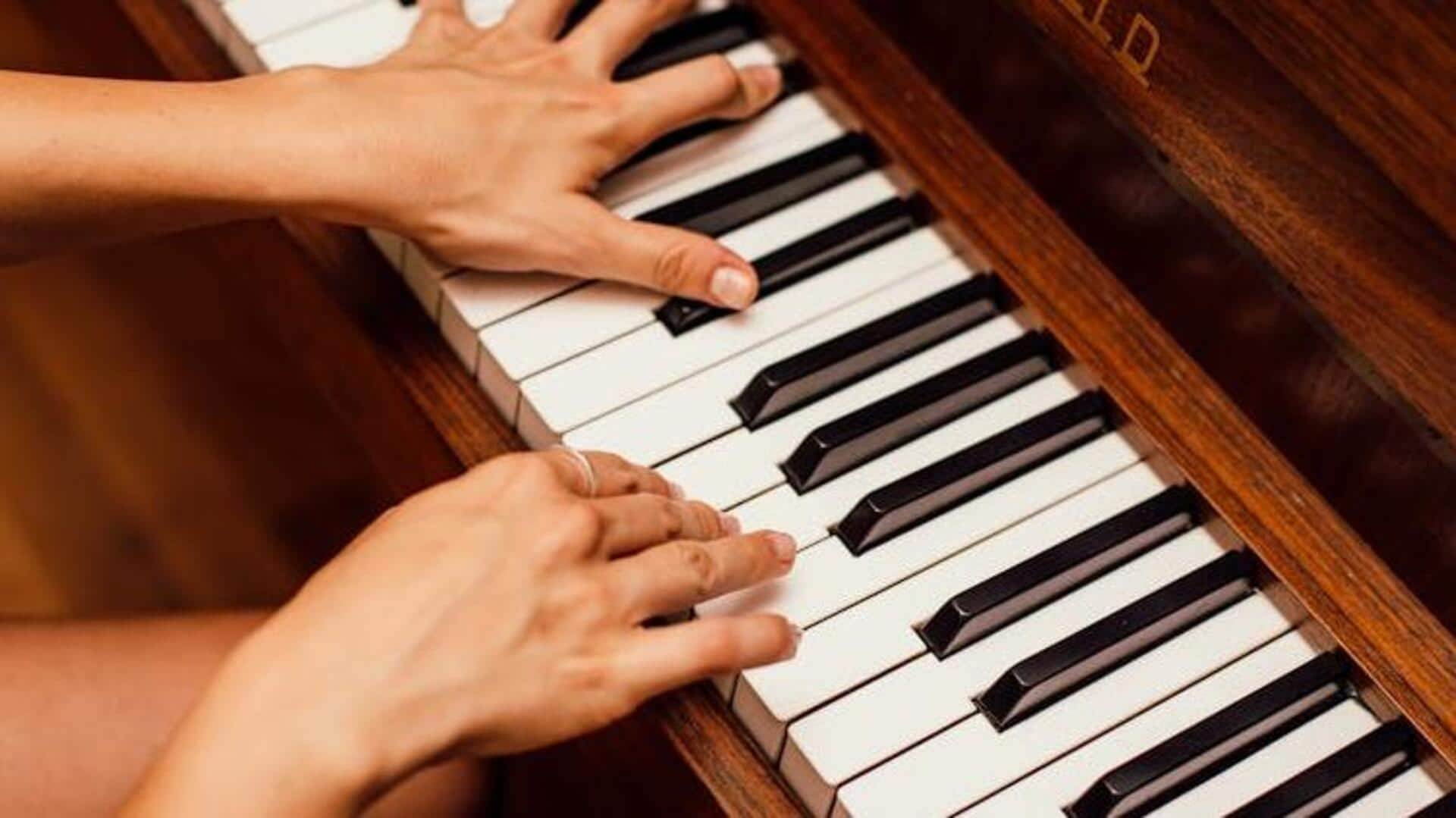
Enhance your piano skills: 5 simple finger drills
What's the story
Want to level up your piano improvisation skills? It's all about agility!
One secret to unlocking that improv magic is finger drills. Yeah, you heard right.
These bad boys will skyrocket your dexterity and speed, making you the Mozart of the moment.
This article dives into five must-know finger drills that will supercharge your improv agility. Say hello to smoother, more expressive piano playing!
Scale drills
Scale mastery for improved fluidity
Scales are the backbone of piano music, and becoming proficient in them is essential for any pianist aiming to excel at improvisation.
By practicing scales in various keys, you will internalize the framework of music, allowing you to improvise with greater intuition.
Begin with major scales, then progress to minor, chromatic, and modal scales.
Dedicating at least fifteen minutes daily to scale drills will yield significant improvements within weeks.
Hanon drills
Strengthening fingers with Hanon exercises
The Virtuoso Pianist by Charles-Louis Hanon is a compilation of exercises specifically designed to build finger strength and increase flexibility.
These drills utilize repetitive patterns that isolate each finger, guaranteeing that all digits gain equal power and agility.
Incorporating Hanon exercises into your daily regimen will drastically augment your ability to handle intricate improvisations with ease.
Bach drills
Building independence with Bach's inventions
Johann Sebastian Bach's Two-Part Inventions are unrivaled for developing hand independence, a crucial skill in improvisation.
These pieces force the pianist to handle different melodies with each hand at the same time, improving coordination and agility.
Beginning practice slowly and gradually increasing the tempo can greatly strengthen your hand independence, enabling you to handle more intricate improvisations effortlessly over time.
Arpeggio drills
Enhancing speed with arpeggio practice
Arpeggios (broken chords played in a sequence across the keyboard) are crucial for creating flowing musical passages in improvisations.
By consistently practicing arpeggios in different keys, pianists can improve their speed and accuracy in moving across the piano keys.
Beginning with basic triad arpeggios and progressing to seventh chords and diminished arpeggios provides a comprehensive exercise, crucial for mastering these components.
Etude drills
Creative expression through improvisational etudes
Etudes are like musical workouts, designed to target specific technical hurdles.
To boost your improvisation agility, seek out etudes that foster creative expression in tandem with technical mastery.
Think Frederic Chopin or Claude Debussy— their etudes don't just push your fingers to the limit; they cultivate musicality and expressiveness, essential for captivating piano improvisation.